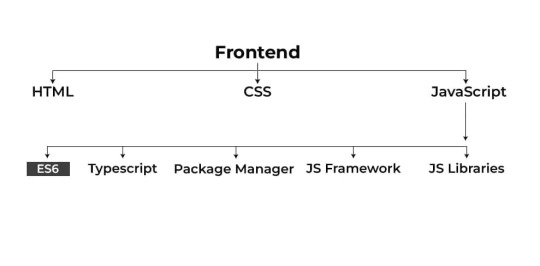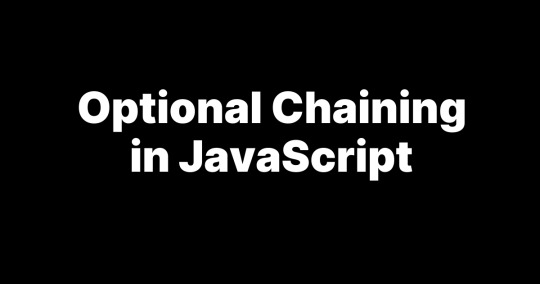#ecmascript
Explore tagged Tumblr posts
Text
Product Owner: We just found out the client is still using Internet Explorer, so we’ll need to add ES5 support. Can you get that done by the end of the day?
Developer: Well I can’t make any promises, but I’ll give you a callback this afternoon and let you know how far along it is.
2 notes
·
View notes
Text

#standards#developer#tcp/ip#http#oauth#sql#html#css#ecmascript#iso#data#format#openapi#development#software#web#bytebytego
1 note
·
View note
Text
🌟Explore the World of ECMAScript! Dive into the Latest Developments in JavaScript 🚀
Looking to stay on top of the latest trends in JavaScript? Check out our new blog post on ECMAScript at egizsolution.com! Discover what’s new and exciting in the world of JavaScript with ECMAScript updates.
🔥 What's in the Blog:
Understanding the evolution of ECMAScript
Key features and enhancements in ECMAScript X
How ECMAScript is reshaping modern web development
Practical examples and use cases
Tips for leveraging ECMAScript in your projects
Whether you’re a seasoned developer or just starting with JavaScript, our blog post has something for everyone. Stay informed and level up your coding skills with ECMAScript Applications insights!
Read the full article here: [Read More]
Don't forget to share this valuable resource with your fellow developers and tech enthusiasts. Let’s spread the knowledge together!
0 notes
Photo

TypeScript,基于JavaScript构建的强类型编程语言 - 泪雪网
0 notes
Text
youtube
#JavaScript#WebDevelopment#Programming#TechEducation#Coding#ECMAScript#JavaScriptHistory#JavaScriptApplications#JavaScriptVersions#JavaScriptAdvantages#JavaScriptLimitations#FrontEndDevelopment#WebApplications#MachineLearning#React#Nodejs#MobileApps#Youtube
1 note
·
View note
Text

Visualpath provides top-quality React JS Training conducted by real-time experts. Our training is available worldwide, and we offer daily recordings and presentations for reference. Call us at +91-9989971070 for a free demo.
WhatsApp: https://www.whatsapp.com/catalog/919989971070
Visit: https://visualpath.in/ReactJs-Training-in-Hyderabad.html
#freedemo#visualpathedu#fullstackdeveloper#fullstackdevelopment#fullstack#FullStackDevelopmentTraining#software#mernstack#reactjsdeveloper#mernstackdeveloper#education#mongoDB#uideveloperelopment#MEANStack#nodejs#HTML#AngularJS#css#ecmascript
0 notes
Text
What are the latest features and enhancements in Node.js for 2024?
As of 2024, Node.js continues to advance with several key features and enhancements that significantly impact node.js app development services. Some notable developments include:
Performance Boosts: Ongoing efforts to optimize the V8 JavaScript engine contribute to improved runtime performance, ensuring faster execution and responsiveness in Node.js applications.
ECMAScript Standards Compliance: Node.js remains committed to staying current with ECMAScript standards, providing developers with access to the latest JavaScript language features and ensuring compatibility with modern web development practices.
Enhanced Security Measures: Security remains a top priority, and new features and updates are expected to bolster Node.js security, addressing potential vulnerabilities and offering developers tools to build more secure applications.
Developer Experience Improvements: Node.js continues to focus on enhancing the overall developer experience. Look for updates in developer tools, debugging capabilities, and frameworks that simplify and streamline the development process.
Containerization and Deployment Optimizations: With the growing prevalence of containerization, Node.js is likely to introduce features that enhance compatibility with Docker, Kubernetes, and other container orchestration tools, facilitating smoother deployment workflows for app services.
Native ESM Modules Support: Native support for ECMAScript modules in Node.js improves code organization and simplifies module management, providing developers with more flexibility and modularity in their applications.
npm Enhancements: The Node Package Manager (npm) is integral to Node.js development, and updates may include new features, optimizations, and improved dependency management tools to facilitate seamless integration of third-party libraries and packages.
WebAssembly Integration: Node.js may introduce features or optimizations to better support the integration of WebAssembly modules within applications, opening up new possibilities for performance-critical tasks.
GraphQL Support: Given the increasing adoption of GraphQL, Node.js might offer improved support and integrations to streamline the development of APIs using this query language, enhancing flexibility and efficiency in building data-driven applications.
Extended Support for Serverless Architectures: Node.js is likely to adapt to the trend of serverless computing, providing features that make it easier for developers to build and deploy serverless applications.
To stay updated on these features and enhancements, it's essential for Node.js app development services to regularly check the official Node.js website, release notes, and participate in relevant community discussions. Embracing these advancements ensures that your Node.js applications leverage the latest tools and capabilities for optimal performance and maintainability.
#NodeJS#JavaScript#WebDevelopment#TechUpdates#Programming#ECMAScript#DeveloperTools#AppDevelopment#CodeOptimization#SecurityInTech#PerformanceImprovements#Containerization#DevOps#OpenSource#WebAssembly#GraphQL#Serverless#npmUpdates#TechInnovation#DeveloperCommunity
0 notes
Text
a lot of people hate on javascript for like things that are just part of the ieee754 floating point standard, and not for the actual bad things about the language, like how the array 'sort' method casts numbers to strings and sorts them lexicographically, or how typeof null === 'object' when null is actually a primitive value of type null
#idk why tf sort does that#the null thing makes sense at least#there was a bug in typeof that got added to the ecmascript standard cause it broke too many websites when they fixed it
2 notes
·
View notes
Text

#TypeScript Course#ES6 Course#ECMAScript 6 Course#TypeScript Classes#ES6 Classes#ES6 & Typescript Training Institute
0 notes
Text
Optional Chaining in JavaScript
Introduced in ECMAScript 2020, Optional Chaining is a a modern feature in JavaScript that allows you to read the value of a property located deep within a chain of nested object properties, without having to explicitly validate each reference in the chain. This simplifies the process of handling potential null or undefined values without the need for cumbersome and error-prone conditional…

View On WordPress
8 notes
·
View notes
Text
Exploring the Powerhouse: 30 Must-Know JavaScript Libraries and Frameworks for Web Development
React.js: A declarative, efficient, and flexible JavaScript library for building user interfaces.
Angular.js (Angular): A web application framework maintained by Google, used for building dynamic, single-page web applications.
Vue.js: A progressive JavaScript framework for building user interfaces. It is incrementally adaptable and can be integrated into other projects.
Node.js: A JavaScript runtime built on Chrome's V8 JavaScript engine that enables server-side JavaScript development.
Express.js: A web application framework for Node.js that simplifies the process of building web applications.
jQuery: A fast, small, and feature-rich JavaScript library that simplifies HTML document traversal and manipulation, event handling, and animation.
D3.js: A powerful library for creating data visualizations using HTML, SVG, and CSS.
Three.js: A cross-browser JavaScript library and application programming interface (API) used to create and display animated 3D computer graphics in a web browser.
Redux: A predictable state container for JavaScript apps, often used with React for managing the state of the application.
Next.js: A React framework for building server-side rendered and statically generated web applications.
Svelte: A radical new approach to building user interfaces. It shifts the work from the browser to the build step, resulting in smaller, faster applications.
Electron: A framework for building cross-platform desktop applications using web technologies such as HTML, CSS, and JavaScript.
RxJS: A library for reactive programming using Observables, making it easier to compose asynchronous or callback-based code.
Webpack: A module bundler for JavaScript applications. It takes modules with dependencies and generates static assets representing those modules.
Babel: A JavaScript compiler that allows developers to use the latest ECMAScript features by transforming them into browser-compatible JavaScript.
Jest: A JavaScript testing framework designed to ensure the correctness of your code.
Mocha: A feature-rich JavaScript test framework running on Node.js and in the browser.
Chai: A BDD/TDD assertion library for Node.js and the browser that can be paired with any testing framework.
Lodash: A modern JavaScript utility library delivering modularity, performance, and extras.
Socket.io: A library that enables real-time, bidirectional, and event-based communication between web clients and servers.
GraphQL: A query language for APIs and a runtime for executing those queries with your existing data.
Axios: A promise-based HTTP client for the browser and Node.js, making it easy to send asynchronous HTTP requests.
Jasmine: A behavior-driven development framework for testing JavaScript code.
Meteor.js: A full-stack JavaScript platform for developing modern web and mobile applications.
Gatsby.js: A modern website framework that builds performance into every website by leveraging the latest web technologies.
Chart.js: A simple yet flexible JavaScript charting library for designers and developers.
Ember.js: A JavaScript framework for building web applications, with a focus on productivity and convention over configuration.
Nuxt.js: A framework for creating Vue.js applications with server-side rendering and routing.
Grunt: A JavaScript task runner that automates common tasks in the development process.
Sass (Syntactically Awesome Stylesheets): A CSS preprocessor that helps you write maintainable, scalable, and modular styles.
Remember to check each library or framework's documentation and community support for the latest information and updates.
4 notes
·
View notes
Quote
宮崎県の統計システムの公募がなかなか攻めてます。 攻めてるポイント1: 既にある程度動く試作品が県からgithubで提示されてる。機能全てを職員である落合さんが一人で作成。つまり、「おまえらこれより良いのを作れよ」という挑戦状が叩きつけられている! > 県からの試作品(プロトタイプ)の提示 > データ可視化機能部分は試作品を県から WEB 上(GitHub)で提示する。 (https://github.com/mtoukei/statbox2 )受託者は試作品と同機能またはそれ以上の機能を実現すること。なお、試作品に含まれていない機能を提案することを妨げない。 攻めてるポイント2. ECMAScript ver.6 以上、とか、Babel とか Vue.js とか、ライブラリの指定が細かい。ちゃんとモダンなフレームワーク使えよ。と。
新みやざき統計BOX構築業務企画提案競技を実施します
2 notes
·
View notes
Text
TypeScript for Beginners: A Step-by-Step Guide

Welcome to the world of TypeScript! If you're a JavaScript developer looking to enhance your code with static typing, you've come to the right place. This typescript tutorial for beginners will walk you through the fundamentals, step by step, without overwhelming you.
What is TypeScript?
TypeScript is a superset of JavaScript, meaning it builds upon JavaScript's existing syntax and capabilities. The key difference is that TypeScript adds static typing. This allows you to define the types of variables, function parameters, and return values, catching potential errors during development rather than at runtime. Think of it as adding a safety net to your JavaScript code.
Why Learn TypeScript?
Improved Code Quality: Static typing helps prevent common JavaScript errors, leading to more robust and reliable applications.
Enhanced Developer Experience: TypeScript's type system provides better code completion, navigation, and refactoring tools in your IDE.
Scalability: TypeScript is excellent for large-scale projects, making code easier to maintain and understand.
Modern JavaScript Features: TypeScript supports the latest ECMAScript features and can transpile them to older JavaScript versions for broader browser compatibility.
Getting Started: Setting up TypeScript
Install Node.js and npm: If you don't have them already, download and install Node.js from the official website. npm (Node Package Manager) comes bundled with Node.js.
Install TypeScript globally: Open your terminal or command prompt and run the following command: Bashnpm install -g typescript
Create a TypeScript file: Create a new file with a .ts extension, for example, hello.ts.
Write your first TypeScript code: TypeScriptlet message: string = "Hello, TypeScript!"; console.log(message); In this example, we've declared a variable message and explicitly assigned it the type string.
Compile the TypeScript code: To convert the TypeScript code into JavaScript, run the following command in your terminal: Bashtsc hello.ts This will create a hello.js file in the same directory.
Run the JavaScript code: Execute the generated JavaScript file using Node.js: Bashnode hello.js You should see "Hello, TypeScript!" printed to your console.
Understanding Basic Types
TypeScript provides several built-in types:
string: Represents text values.
number: Represents numerical values.
boolean: Represents true or false values.
any: Represents any type (use with caution).
array: Represents an array of values.
tuple: Represents an array with a fixed number of elements and known types.
enum: Represents a set of named constants.
Example:
TypeScriptlet age: number = 30; let isStudent: boolean = false; let names: string[] = ["Alice", "Bob", "Charlie"]; enum Color { Red, Green, Blue, } let selectedColor: Color = Color.Green; console.log(age); console.log(isStudent); console.log(names); console.log(selectedColor);
Functions with Types
TypeScript allows you to define the types of function parameters and return values:
TypeScriptfunction add(a: number, b: number): number { return a + b; } let result: number = add(5, 10); console.log(result); // Output: 15
Interfaces
Interfaces define the structure of objects:
TypeScriptinterface Person { name: string; age: number; } function greet(person: Person): string { return `Hello, ${person.name}! You are ${person.age} years old.`; } let user: Person = { name: "John", age: 25 }; console.log(greet(user));
Next Steps
This typescript tutorial for beginners has covered the basics. To further enhance your TypeScript skills, explore these topics:
Classes and Inheritance
Generics
Modules
TypeScript with React or Angular
TypeScript empowers you to write cleaner, more maintainable code. Embrace its type system, and you'll find your JavaScript development workflow significantly improved. Happy coding!
0 notes
Text
ECMAScript 2025 JavaScript standard takes shape
ECMAScript 2025, the next version of an ECMA International standard for JavaScript, will standardize new JavaScript capabilities ranging from JSON modules to import attributes, new Set methods, sync iterator helpers, and regular expression modifiers. The ECMAScript 2025 specification most likely be finalized in June. All told, nine finished proposals on the ECMAScript development committee’s…
0 notes
Text
TypeScript and Docker: Containerizing Your Applications Efficiently
1. Introduction What is TypeScript? TypeScript is an open-source, statically typed, multi-paradigm programming language developed by Microsoft. It is a superset of JavaScript (ECMAScript) that compiles to JavaScript. TypeScript adds static typing and other features to improve the development experience, catch errors early, and improve code maintainability. What is Docker? Docker is a…
0 notes
